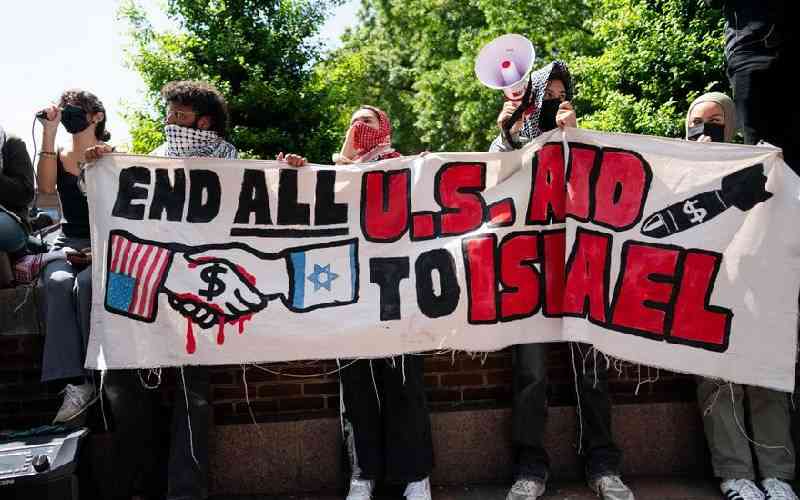×
The Standard e-Paper
Home To Bold Columnists

Protests against Israel's military actions in Gaza have intensified across multiple American universities for over a week, calling for a permanent ceasefire in the Gaza Strip as well as the cessation of U.S. military aid to Israel.
The growing protests underscore latest escalations in the Israel-Palestine conflict, which, coupled with the Biden administration's doubles down on Israel support, have fueled anti-war sentiments within the United States, with public dissatisfaction with the government mounting rapidly.